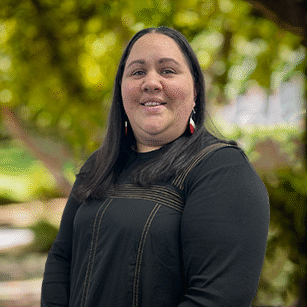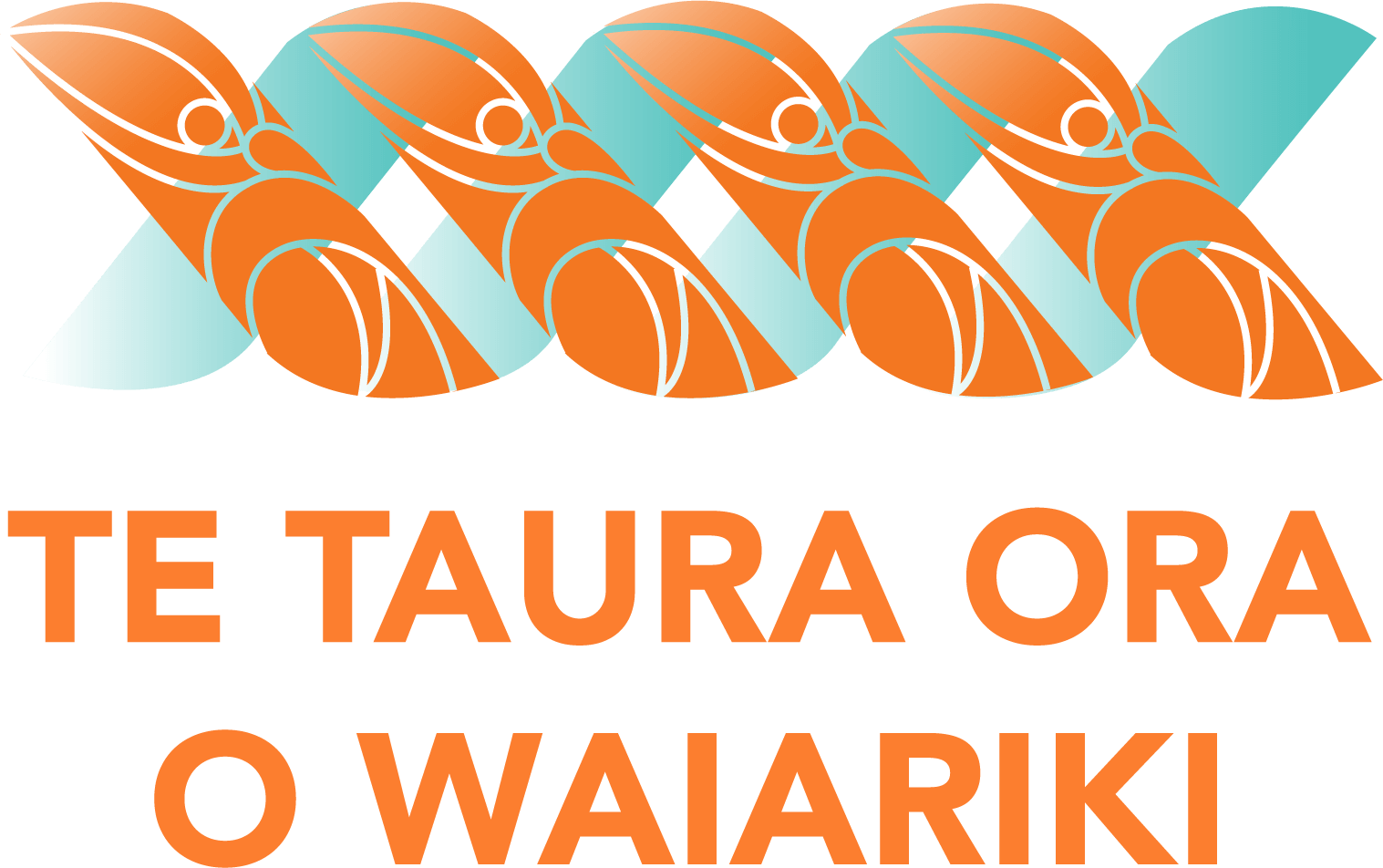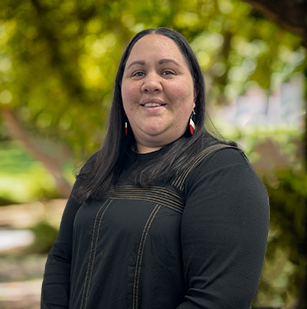New Pou Oranga for Te Arawa IMPB to Drive Whānau Wellbeing in Te Arawa

In a move to strengthen delivery on its strategic health priorities, Te Taura Ora o Waiariki, Iwi Māori Partnership Board has appointed Jeanette Te Ua-Hausman (Ngā Wairiki, Ngāti Apa) as Pou Oranga – Projects, a role focused on leading and coordinating kaupapa that advance the Board’s strategic priorities for hauora Māori across the rohe.
“We welcome Jeanette at a moment when the future of Māori health governance is at stake,” says Hingatu Thompson, Chair of Te Taura o Waiariki Iwi Māori Partnership Board. “Her appointment reflects our commitment to delivering Te Arawa-led solutions to the housing, health, and wellbeing challenges that are particularly acute in Rotorua.”
“Our whānau face complex social issues, from high housing stress and homelessness to the health inequities highlighted in the Waitangi Tribunal’s Hauora Report. In Waiariki, low cancer screening and immunisation rates show a public health system that too often falls short.”
“Jeanette brings expertise in housing strategy, community engagement, and multi-stakeholder coordination, enabling practical, culturally grounded solutions to overcrowding, damp homes, and the broader social determinants of health affecting Te Arawa whānau.”
The Board appreciates the value of Jeanette’s proven leadership in housing, project management, and iwi-led collaboration with a strong understanding of Tikanga Māori which strengthens the ability of Te Taura to deliver outcomes that are not only effective but mana-enhancing and grounded in Te ao Māori, reflecting the aspirations and realities of Te Arawa whānau.
Jeanette brings more than a decade of project and operational leadership across diverse sectors, housing advocacy, and iwi–Crown partnership work underpinned by a Bachelor of Applied Management in Project and Operations Management.
Most recently, as Housing Advisor for Whanganui District Council, she led strategic action plans for housing and homelessness, successfully managed complex projects addressing social determinants of wellbeing and facilitated housing action groups, coordinating multi-stakeholder initiatives with Iwi, hapū, and government agencies. Her career also spans leadership roles in real estate, manufacturing operations, and human resources, with a consistent focus on building kaupapa that improve community wellbeing.
As Pou Oranga, Jeanette will manage the delivery of key projects from the IMPB’s annual work programme, including initiatives addressing housing, poverty, and food security – critical social determinants of health. She will also strengthen partnerships across iwi, hapū, providers, and Crown agencies to ensure Te Arawa aspirations are at the centre of local system change.
Her appointment comes at a time when Rotorua is experiencing both a housing crisis and significant health reforms with the Pae Ora (Healthy Futures) Bill. With Te Whatu Ora restructuring frontline services, the role of IMPBs in shaping local solutions has become even more critical.
“Jeanette’s experience leading iwi–Crown partnerships in the housing space makes her uniquely placed to progress Te Arawa-led solutions,” says Thompson. “This appointment signals our determination to move beyond business-as-usual and deliver transformational change for our whānau.”
Media Liaison: Sarah Sparks Email: Sarah.sparks@sparksconsulting.co.nz Mobile: 021318813
Māori health front and centre from cancers to overall hauora

Waatea News Radio Interview
Rawiri Bhana is a strategic leader with Te Taura Ora o Waiariki, bringing deep expertise in Māori governance, tikanga, and land development to advance iwi aspirations across the Te Arawa rohe. As Aotearoa faces deepening health inequalities and the ongoing fallout from the disestablishment of the Māori Health Authority (Te Aka Whai Ora), Māori-led health solutions are proving to be not just necessary-but transformative. Grounded in whakapapa, wairua, and whānau-centred care, iwi, hapū, and Māori providers across the motu are building a parallel system of care designed by Māori, for Māori.
Despite decades of health reform, Māori continue to experience:
-
A 7-year life expectancy gap compared to non-Māori
-
Higher rates of preventable diseases, including diabetes, cancer, and heart disease
-
Barriers to accessing care, including institutional racism, cost, and cultural disconnection
These disparities have led to a rising demand for Māori-led responses that prioritise mana motuhake-self-determination-and reflect a holistic view of health grounded in te ao Māori.
Original Article Source: https://waateanews.com/2025/07/08/ata-tu-rawiri-bhana/
Waiariki Iwi Māori Partnership Board calls for action on low cancer screening rates

Just under 60% of Māori women in Waiariki are up to date on breast and cervical cancer screenings. Photo / Getty Images
Waiariki whānau will be “dying needlessly” if breast and cervical cancer screening rates do not improve, the local Iwi Māori Partnership Board (IMPB) says.
Te Taura Ora o Waiariki is concerned about the “very low” screening rates, with data showing less than 60% of Māori wāhine in the Te Whatu Ora Lakes region were up to date last year.
The IMPB has issued the first of its quarterly monitoring reports on the performance of Te Whatu Ora Health New Zealand.
Under the Pae Ora Act 2022, IMPBs are tasked with monitoring the performance of the health sector within their rohe.
The report showed 58% of Māori wāhine were up to date with cervical screens and 55.9% with breast screens for the quarter ending in September 2024.
For the following quarter, the figures increased to 59.9% and 56.8% respectively.
Te Taura Ora o Waiariki chairman Hingatu Thompson called on more investment in hauora providers to raise awareness and “help people get there”.
“Providers proved they can reach our whānau during Covid with the high rates of testing and vaccination. Given the resource, they can make a massive impact on cancer screening rates.”
Thompson said the board’s focus was improving cancer screening and child immunisation rates, “as those two services save lives”.
“We will do whatever it takes to encourage Health NZ to use our local experienced providers to help close those gaps.
“That will make a huge difference to our community.”
Te Taura Ora o Waiariki member Rutu Maxwell-Swinton said the “real worry” of the report was “very low” cancer screening rates.

Waiariki IMPB members (from left) Rutu Maxwell-Swinton, John Porima, Deputy Chair Jenny Kaka-Scott, Rāwiri Bhana, Te Rau Aroha Morgan, Chairman Hingatu Thompson, and Lauren James.
“Unless we can get potential cancers detected earlier, we are going to have whānau dying needlessly from undetected cancers,” she said.
Maxwell-Swinton also highlighted low child immunisation rates in the Lakes region, with only 55.9% of eligible Māori children aged 24 months having received their childhood immunisations at the end of December.
This compared with 76.1% of European children.
“This is another area where Māori providers, hapū and iwi can have an impact if given the resourcing to bridge the equity gaps, as clearly the mainstream system isn’t working well.”
Te Arawa Whānau Ora Kaiaukaha-ā-Matariki Oro Tuawhenua co-ordinator Yvonne Rogers said the screening data was “disappointing because we know screening saves lives”.
Her work involved increasing participation in screening through promotion, prevention, and ensuring accessibility to screening programmes and services if people were diagnosed, she said.
“We know that a lot of our wāhine and tāne present too late.”
Rogers said distrust within the health system and “fear of knowing” were among reasons for lower screening rates for wāhine Māori.
“For me and for our organisation, it’s about demystifying those myths … people don’t have to die from diseases like that if they’re caught early enough.”
She encouraged wāhine to screen early and to seek medical support if they noticed changes within their bodies.
Health NZ director of prevention, Alana Ewe-Snow, said its new national breast-screening system, Te Puna, would increase coverage for all population groups over time.
The rollout of Te Puna was completed last month and women were now automatically identified when they became eligible and invited to book a mammogram, changing “from an opt-in to an opt-out model”.
Ewe-Snow said a review of BreastScreen Aotearoa made 26 recommendations, focused on improving access, support and experiences for wāhine Māori and Pacific women, and disabled women.
Initiatives to improve screening coverage were under way in partnership with Hauora Māori partners, communities and whānau, she said.
This included the National Telehealth Service Whakarongorau Aotearoa trialling of their whakawhanaungatanga (relationship building) approach, supporting a breast screening provider.
This involved follow-up calls to wāhine Māori and Pacific women who had not replied to screening invitations or who had missed a mammogram appointment.
BreastScreen Aotearoa was delivering a national campaign to promote the importance of getting two-yearly mammograms. It aimed to increase breast screening rates for wāhine Māori and targeting regions where screening was lowest.
Ewe-Snow said the national cervical screening programme continued to prioritise improvement in screening levels for Māori and other priority groups by expanding the human papillomavirus (HPV) primary screening workforce to include non-clinical staff.
She said this would support screening capacity and enable more community health providers to offer screening. This helped to reduce access barriers for those who may not be enrolled in general practices.
It also continued to fund screening support services to support wāhine Māori who experienced accessibility barriers. The services were focused on areas with lower cervical screening coverage.
Ewe-Snow said a self-test HPV option was implemented in September 2023. Evidence suggested this was a “more culturally acceptable test” for wāhine Māori, enabling them to better participate in the programme.
Article by Megan Wilson (Rotorua Daily Post)
Original Article Source: https://www.nzherald.co.nz/rotorua-daily-post/news/waiariki-iwi-maori-partnership-board-calls-for-action-on-low-cancer-screening-rates/EKAKBG3YQFDKXN52ZEDMNDRYNE/

